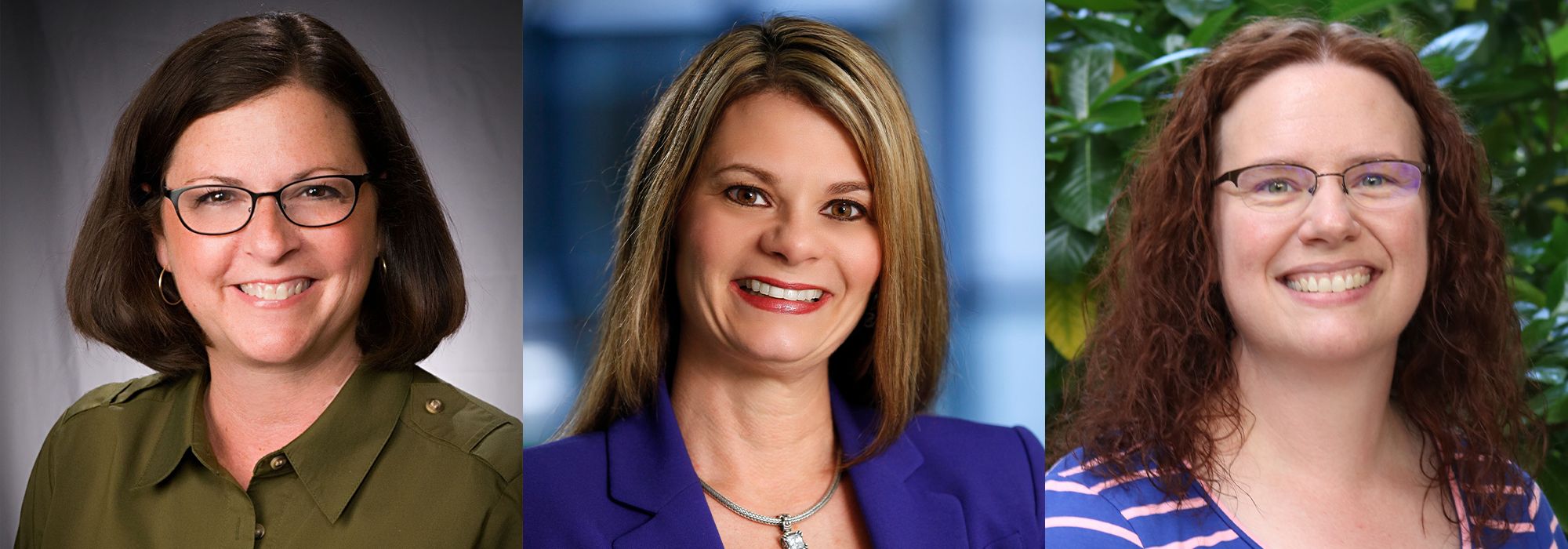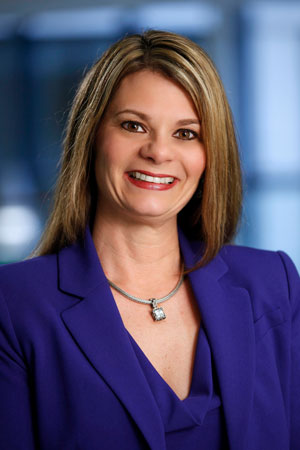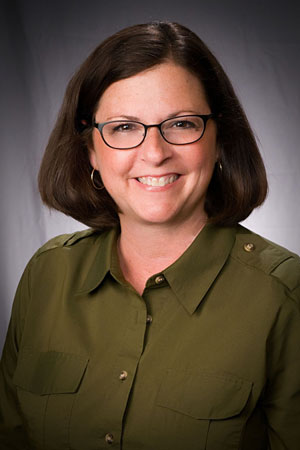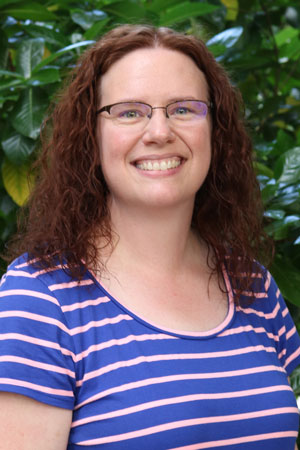
EBP Fellowship
by Victoria Ellwood
A new fellowship program at the Helene Fuld Health Trust National Institute for Evidence-based Practice (EBP) in Nursing and Healthcare is empowering Doctor of Nursing Practice (DNP) nurses from around the U.S. to take the lead and find evidence-based practice solutions to make a difference in their communities. The DNP Postdoctoral Fellowship program was launched in July 2021 by the Fuld Institute for EBP.
The year-long mentored fellowship is designed to create DNP leaders in clinical practice and academia who will translate evidence into practice in real-world settings to improve outcomes.
According to Lynn Gallagher-Ford, PhD, RN, NE-BC, DPFNAP, FAAN, chief operating officer and clinical core director, “This fellowship experience is so important because we feel every DNP – no matter where they received their education or where they are now working – should be a leader in evidence-based practice. One of our goals globally is to clarify the role of the DNP as a leader in bringing EBP into the day-to-day operations of health care.”
The eight members of the inaugural fellowship cohort represent a wide range of organizations and areas of practice. “Our post-doctoral fellowship is for DNPs who are working in healthcare as well as in academia, because we want to elevate evidence-based practice in both of those realms,” said Cindy Zellefrow, DNP, MSEd, RN, LSN, PHNA-BC, academic core director. “Our current Fellows come from New Jersey to Hawaii and all points in between.”
The goal, she said, is to ensure DNPs are experts in several areas: EBP, evidence-based quality improvement (EBQI), implementation strategies based on implementation science, leading change in complex systems and understanding innovation. “These are the driving forces of better outcomes across healthcare that are central to the program.”
Learn more and apply for The Fuld Institute for EBP DNP Postdoctoral Fellowship.
Fellows may be DNP graduates from any academic organization and do not need to have a connection to Ohio State. Within the program, each Fellow is matched with a mentor from the Fuld Institute’s leadership team. Fellows also have the option to secure a mentor from their organization, who serves as part of the mentoring team. The mentoring team helps guide and support each Fellow in the work of the fellowship across the year through bi-monthly virtual meetings. In addition, the full cohort connects monthly as a group to engage in professional development with nationally and internationally recognized experts from various professional organizations across healthcare and academia.
As part of the work of the fellowship, Fellows choose initiatives to lead within their organizations. “Typically, DNP students ‘do’ a project rather than lead it. We really need DNPs to lead this work,” Zellefrow explained. “In this program, they work with their organization to find an issue that needs to be addressed. Then they put together a team that they’ll lead as they take an evidence-based practice approach to discovering and implementing best practice.”
Initiatives undertaken by the Fellows vary as much as their organizations and their geographic locations. Here are a few examples of their work:
Betty Jo Rocchio, DNP, RN, CRNA, CENP, (’21 DNP)
 Rocchio is senior vice president and chief nursing officer at Mercy, one of the 25 largest U.S. health systems, serving communities in Missouri, Arkansas, Oklahoma and Kansas. A 2021 alumna of Ohio State’s DNP program, Rocchio is taking a big-picture approach to her fellowship initiative.
Rocchio is senior vice president and chief nursing officer at Mercy, one of the 25 largest U.S. health systems, serving communities in Missouri, Arkansas, Oklahoma and Kansas. A 2021 alumna of Ohio State’s DNP program, Rocchio is taking a big-picture approach to her fellowship initiative.
“At Mercy, we have a strong evidence-based approach to the care of our patients … and it’s bigger than just nursing. We have essential components of evidence-based practice across the health system, and now we are planning to embed EBP into care delivery at all levels,” she said.
“We want to make EBP the standard for physicians, for nurses, for all clinical co-workers who should have the mindset of using these practices in our day-to-day operations for the benefit of our patients. If we just look at nursing and EBP, we will fall short of being able to make it the standard. We’re going to take it to the whole health system, to a global level, to more than 40 hospitals. It’s going to be a large undertaking, but we’re going to make it happen for the communities we are privileged to serve.”
Rocchio’s ambitious endeavor includes creating an EBP Center of Excellence for the entire health system at Mercy. “I’m starting my search to look at the components and do an internal assessment to see where we should be moving in the future. I want to ultimately pull it together under a system-wide structure.”
She credits Ohio State, the Fuld Institute for EBP and the fellowship for helping her bring the innovations home.
“EBP must be the wave of the future,” she said. “I’m so grateful to be part of this fellowship. We have to educate our future nurses with this mindset, and the Fuld and Ohio State are helping us spread it throughout the country. With the DNP fellowship, we can expand the way nurses and other healthcare workers think about EBP. We can become a global marketplace for EBP, reaching out beyond Ohio and impacting nationally how nurses practice.”
Lee Ann Strait, DNP, RN-BC, (’18 DNP)
 Strait is an assistant professor of clinical practice at the College of Nursing. Strait has been with the college for eight years and finished her DNP degree in 2018. She was attracted to the Fuld fellowship because it allows her to pursue a year-long study within her own organization, working with her own mentors, focusing on an initiative that will ultimately benefit the college. “That seemed like a great fit,” she said.
Strait is an assistant professor of clinical practice at the College of Nursing. Strait has been with the college for eight years and finished her DNP degree in 2018. She was attracted to the Fuld fellowship because it allows her to pursue a year-long study within her own organization, working with her own mentors, focusing on an initiative that will ultimately benefit the college. “That seemed like a great fit,” she said.
Strait's initiative examines career opportunities for faculty holding DNP degrees compared with those with PhDs. “We’ve seen an increase in the number of faculty members who have a DNP; we wanted to see if evaluation and promotion criteria adequately represent the expertise, strengths and contributions they bring to that role,” she explained.
Strait is leading a team that will first “check the climate” by creating a survey about the perceptions of promotability, expertise and strengths of the DNP- and PhD-prepared faculty. She’s considering questions such as: What are the criteria? Are they equitable? What are some strategies to improve outcomes?
She’s currently in the final stages of building the survey; once approved it will go to all faculty members with doctoral level degrees at the College of Nursing. Results will lead to recommendations and best practices.
Melissa Owens, DNP, APRN-Rx, FNP-BC, NCSN
 Owens is a family nurse practitioner with the Hawaii Keiki: Healthy and Ready to Learn program, where she serves as director of clinical operations. The program provides school-based health services to 257 pre-K to grade 12 public schools, many of which are in rural and underserved communities. Her goal as a Fellow, she said, is to “help school nurses perform their duties and guide the growth of our program so that we go where the evidence leads us.”
Owens is a family nurse practitioner with the Hawaii Keiki: Healthy and Ready to Learn program, where she serves as director of clinical operations. The program provides school-based health services to 257 pre-K to grade 12 public schools, many of which are in rural and underserved communities. Her goal as a Fellow, she said, is to “help school nurses perform their duties and guide the growth of our program so that we go where the evidence leads us.”
Today, thanks to her initiative, emergency medical bags in Hawaii public schools have been refitted, restocked and reorganized according to the best evidence. These new kits are better equipped to be at-the-ready for school nurses, who are being educated on a new method to use common emergency supplies in a more efficient way. “Through this process, I realized that standardizing the bag content and also how they were packed would be really helpful in emergency situations,” she explained. “I scoured all of the evidence out there to determine exactly what items should be in an emergency kit for a school nurse. Additionally, I planned a full-day emergency response education program for school nurses in a simulation center.”
Simulated emergency scenarios at the University of Hawaii at Manoa Translational Health Science Simulation Center in partnership with the UH Manoa Nancy Atmospera-Walch School of Nursing will provide a simulated environment for school nurses to practice their emergency response skills and refine procedures.
The emergency bag project is just a “little piece” of Owens’ fellowship initiative. “In the bigger picture, I want to do EBP education with our school nurses to get everyone familiar with it – how to develop questions, how to seek out the evidence, how to work through the process,” she explained, “so that everything we do can be done in an evidence-based fashion.”
The Fuld Institute for EBP recently began accepting applications for its second cohort for its innovative DNP Postdoctoral Fellowship Program, which will begin in July.
2021-2022 Fellows
- Jennifer Bodine, DNP, RN, NPD-BC, CEN, is a Nursing Professional Development (NPD) program manager for the Association for Nursing Professional Development (ANPD).
- Connie Clemmons-Brown, DNP, MBA, RN, CENP, is a system senior vice president, Patient Care Services for CommonSpirit Health.
- Jennifer Wheaton Galliers, DNP, APRN, FNP-C, serves as the associate vice president, Acute Quality and Evidence-based Practice for ProMedica.
- Michele Hasselblad, DNP, RN, NE-BC, is the vice president for Adult Ambulatory Nursing at Vanderbilt University Medical Center.
- Dawn Mutchko, DNP, APN, FNP-C, CENP, has been a practicing nurse practitioner in primary care and interventional cardiology and director of clinical quality at the Heart and Vascular Institute, Atlanticare Regional Medical Center.
- Melissa Owens, DNP, APRN-Rx, FNP-BC, NCSN, is a family nurse practitioner and director of clinical operations with the Hawaii Keiki: Healthy and Ready to Learn program.
- Betty Jo Rocchio, DNP, RN, CRNA, CENP, is the senior vice president and chief nursing officer at Mercy, a non-profit health system of hospitals, clinics and ministries.
- Lee Ann Strait, DNP, RN-BC, is an assistant professor of clinical practice at The Ohio State University College of Nursing.
